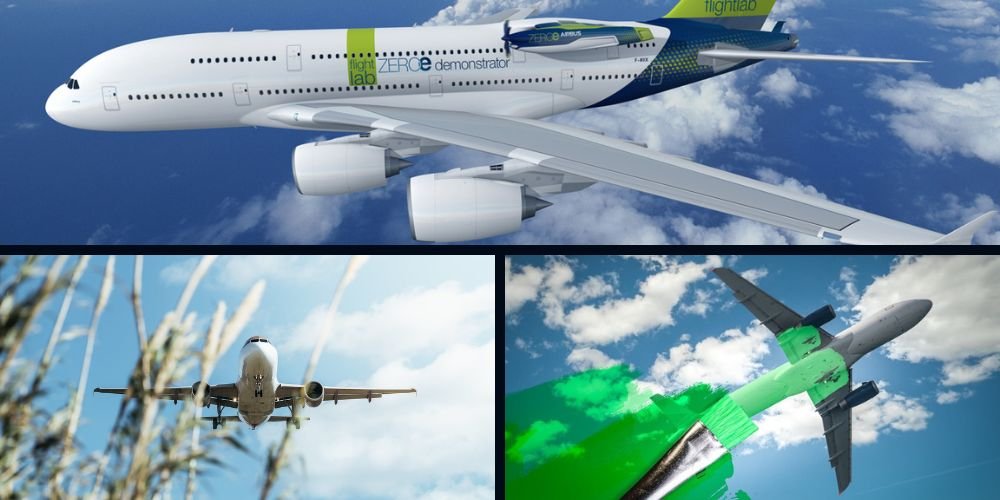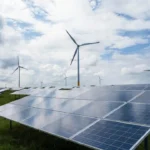Energy-efficient aviation has become a crucial focal point in the global effort to reduce carbon emissions, enhance fuel efficiency, and propel the aviation industry toward a more sustainable future. This comprehensive exploration delves into the intricacies of energy-efficient aviation, unraveling its fundamental principles, key components, recent innovations, notable applications, and transformative impact on reshaping the landscape of air travel and environmental stewardship.
Understanding Energy-Efficient Aviation
Energy-efficient aviation centers on minimizing fuel consumption, reducing greenhouse gas emissions, and optimizing aircraft efficiency. This approach involves integrating advanced technologies, operational improvements, and sustainable practices to make the aviation sector more environmentally friendly and economically viable.
Key Components of Energy-Efficient Aviation
The core components of energy-efficient aviation contribute to its functionality, sustainability, and overall impact on the aviation industry:
- Aircraft Design and Aerodynamics: Incorporating aerodynamic improvements, winglets, and lightweight materials to enhance fuel efficiency and reduce drag during flight.
- Fuel Efficiency and Alternative Fuels: Utilizing advanced propulsion systems and fuel-efficient engines, and exploring alternative aviation fuels to reduce the carbon footprint of air travel.
- Operational Efficiency: Implementing operational practices such as optimized flight paths, efficient ground operations, and improved air traffic management to minimize fuel consumption.
Recent Innovations in Energy-Efficient Aviation
Recent innovations have propelled energy-efficient aviation to new heights, addressing challenges and expanding its applications. Notable advancements include the development of fuel-efficient aircraft, the integration of sustainable aviation fuels, and the exploration of electric and hybrid propulsion systems.
Fuel-Efficient Aircraft Design
Aircraft manufacturers invest in designing and developing fuel-efficient airplanes, incorporating advanced materials, optimized wing configurations, and more efficient engine technologies to reduce fuel consumption and emissions.
Sustainable Aviation Fuels
The integration of sustainable aviation fuels (SAFs), derived from renewable sources such as biofuels and synthetic fuels, reduces the carbon intensity of air travel without requiring significant modifications to existing aircraft or infrastructure.
Electric and Hybrid Propulsion
Exploring electric and hybrid propulsion systems for smaller aircraft and urban air mobility vehicles represents a promising avenue for energy-efficient aviation. These technologies aim to reduce reliance on traditional jet fuel and decrease emissions in short-haul and regional flights.
Notable Applications of Energy-Efficient Aviation
Energy-efficient aviation has diverse applications across various segments of the aviation industry, contributing to reduced emissions, operational cost savings, and a more sustainable future for air travel.
Commercial Aviation
In commercial aviation, energy-efficient practices and technologies are applied to large passenger and cargo aircraft, enhancing fuel efficiency, reducing emissions, and meeting stringent environmental regulations.
Regional and Short-Haul Flights
Its solutions are particularly relevant for regional and short-haul flights, where adopting electric or hybrid propulsion systems and sustainable aviation fuels can significantly reduce emissions.
Challenges in Energy-Efficient Aviation
Despite significant advancements, it faces challenges that impact its widespread adoption and effectiveness. Addressing these challenges is essential for the continued growth and integration of sustainable practices in the aviation sector.
Infrastructure and Certification
Developing necessary infrastructure, including the availability of sustainable aviation fuels and the certification of new propulsion technologies, poses challenges for widespread adoption within the existing aviation ecosystem.
Economic Considerations
The economic considerations associated with developing and implementing energy-efficient aviation technologies, including the initial investment costs and potential impacts on ticket prices, can be a barrier to adoption.
Future Trends in Energy-Efficient Aviation
The trajectory of energy-efficient aviation indicates exciting trends that will further redefine its capabilities and applications. These trends promise to enhance sustainability, improve efficiency, and contribute to the aviation industry’s overall resilience.
Advanced Aircraft Materials
Advancements in lightweight and durable materials, such as carbon composites and advanced alloys, are expected to enhance future aircraft’s fuel efficiency and performance.
Next-Generation Propulsion
Continued research and development in next-generation propulsion technologies, including electric and hybrid-electric systems, are anticipated to revolutionize air travel by offering cleaner and more sustainable alternatives to traditional jet engines.
Conclusion
Energy-efficient aviation is a pivotal force in the global effort to make a more sustainable and eco-friendly aviation industry. From fuel-efficient aircraft designs and the integration of sustainable aviation fuels to the exploration of electric and hybrid propulsion systems, the impact of these advancements extends across diverse segments of air travel. Despite challenges, ongoing innovations in aircraft technology, alternative fuels, and propulsion systems signal a promising future for energy-efficient aviation. As research and development push the boundaries of what is possible, it is poised to play a central role in shaping a cleaner, more efficient, and technologically advanced future for air transportation.





